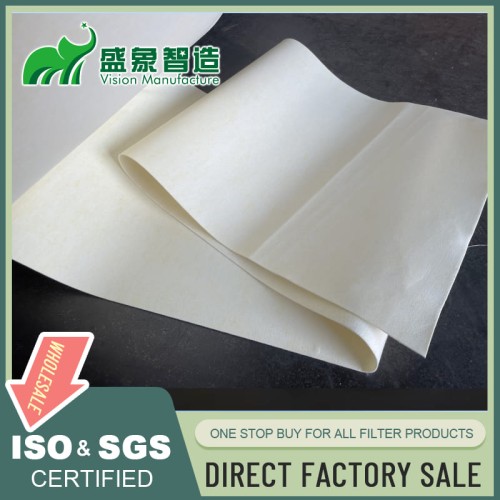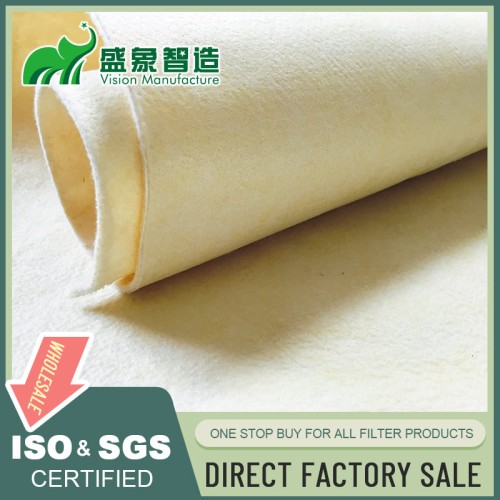
The Top Filter Fabrics Every Industry Professional Should Know About
Explore the transformative role of filter fabrics in various industrial operations. Enhance efficiency, bolster productivity, and maintain environmental compliance with these hidden marvels!
The Role of Filter Fabrics in Industrial Processes
Understanding Filter Fabrics
In the arena of industrial operations, filter fabrics are playing a pivotal role. Their almost limitless applications are transforming traditional practices, powering efficiencies, and paving the path towards a more sustainable future.
Filter fabrics are no longer just mute spectators, they are active participants shaping the future of industrial practices. Deploying them strategically can fundamentally alter performance landscape across industries.
- Emission control in power plants
- Prolonging lifespan of machinery in steel mills
- Enhancing air quality in chemical facilities
- Increasing productivity in pharmaceutical companies
- Improving hygiene standards in food processing units
Diving into the world of filter fabrics, such essential materials offer a bridge to enhance industrial processes. Essentially, they're specially engineered materials designed to trap harmful particulates, safeguarding both equipment and environment.
Understanding filter fabrics leads to operational excellence. These fabrics vary greatly in terms of material, weave, and type - each with unique attributes. Familiarising with these details helps select the perfect fabric, suiting specific industry needs for remarkable results.
Understanding the Importance of Filter Fabrics
What are Filter Fabrics?
Filter fabrics are engineered materials specifically crafted for tasks like separating solid particulates from fluids or gases. Their functionality lends itself to numerous industrial operations, making them an unmissable aspect in fields ranging from power generation to steel manufacturing.
High-grade filter fabrics serve an essential role in industrial processes, representing a cornerstone of efficiency and effectiveness. Their indispensability stems from their ability to filter out particulates, ensuring the purity of air and liquids.
To put it simply, a filter fabric acts like a sieve - it allows certain things to pass through while effectively catching and holding back others. This pivotal role in industrial processes helps ensure efficiency, safety, and compliance with environmental regulations, marking their undeniable importance in your industry.
Wide-ranging industries, from power generation to steel manufacturing, owe much of their process reliability to filter fabrics. Integrated into their operations, these filter materials invariably keep their equipment running smoother and longer by blocking contaminants.
These materials are not just filtration agents but also a defense against machinery wear and tear and pollution. Consequently, filter fabrics hugely contribute to the industries' overall eco-friendliness by reducing emissions and safeguarding nature.
In the nutshell, filter fabrics aren't just part of the industrial machine; they're its lifeblood. Working tirelessly in the backdrop, they directly influence production outputs, boost efficiency, and ensure compliance with environmental regulations.
Therefore, understanding the importance of filter fabrics in our industries is much like discerning the life-affirming flow of red cells in our veins; they are, without a shred of doubt, industry's hidden champions.
Choosing the Right Filter Fabric for Your Industry
Different Types of Filter Fabrics
Delving into the world of filter fabrics, it's clear that the diversity is staggering. From varying materials to different manufacturing technologies, each type serves a distinct industry efficiently.
- Polyester filter felts: Known for their excellent resistance to chemicals and high temperatures, these are widely used in chemical, food, and power generation industries.
- Aramid filter felt: Regarded for their high strength and resistance to abrasion and organic solvents, they're ideal for steel and metal industries.
- PTFE filter felt: Renowned for their extreme resistance to chemicals and high temperatures, PTFE fabrics are most popular in power plants, waste management facilities, and chemical processing.
- Fiberglass filter fabrics: With excellent heat and fire resistance, they are employed in industries dealing with high-temperature processes like power generation and steel manufacturing.
- Polypropylene filter fabrics: These are lightweight, economical, and offer good resistance to acids, which makes them well-suited to the food processing, pharmaceutical, and chemical industries.
Tailoring filter fabrics to fit your industry-specific needs is paramount in maximizing performance. Bespoke solutions ensure the fabric is tailored to the precise applications and requirements of your enterprise.
Selecting filter fabrics isn't a one-size-fits-all task. Key considerations such as temperature resistance, particle size, chemical compatibility, and operation pressure play a crucial role in defining the ideal choice for your enterprise.
Common Types of Filter Fabrics
The Importance of Selecting the Right Filter Fabric
Within the realms of industrial processes, there's a remarkable diversity of filter fabrics employed. These key components, actively working behind the scenes, are essential in maintaining the efficiency and safety of a vast range of operations.
- Polypropylene fabric, a heat-resistant, chemically-inert substance, mainly favoured in the chemical processing industry.
- Polyester filter fabric, a popular choice sought for its incredible durability and versatility, especially in the food and pharmaceutical sectors.
- PTFE (Polytetrafluoroethylene) fabric, boasting supreme heat and chemical resistance, often serves in high-temperature applications like steel manufacturing or power generation.
- Nylon filter fabric is utilized in a range of industries due to its excellent abrasion resistance and flexibility.
- Glass fibre, typically used for ultra-fine particle filtration under severe chemical and temperature conditions.
Optimal operations hinge on the correct filter fabric selection. Your industry's specific filtration requirements may differ vastly, thus, the need for the right filter fabric is non-negotiable.
Your filter fabric choice significantly impacts your industrial operations — from air purification to efficiency enhancement. The ramifications for not correctly choosing can prove detrimental to your production.


